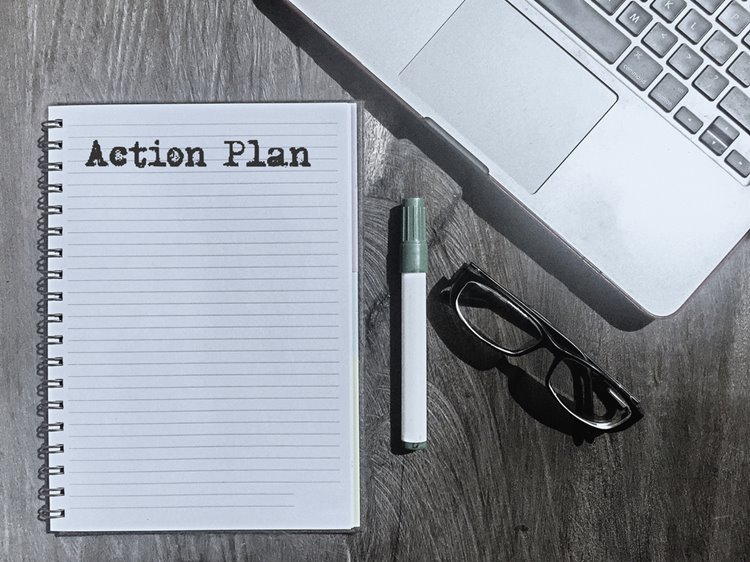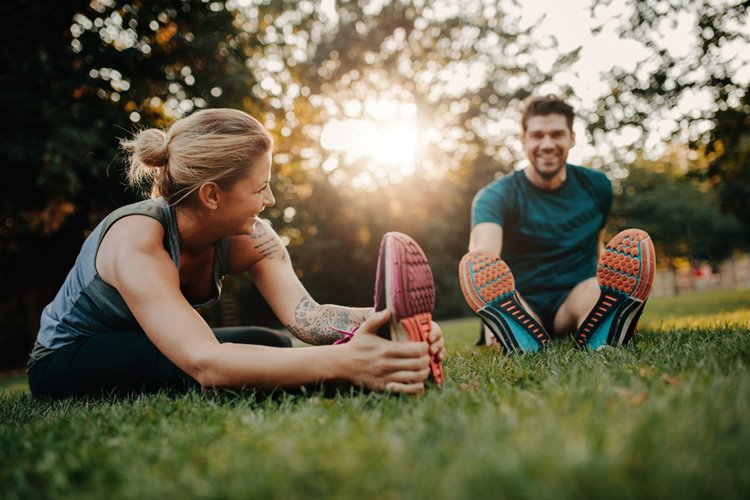The 5 best ways to avoid stress

Stress is something that everyone has to manage at some point in their lives. But when you’re studying, finishing school, or trying to balance multiple commitments, stress can begin to feel like a big part of your life.
Stress can take a toll on our physical and mental well-being, it can also limit our capacity to get work done, or act as a form of distraction. Finding ways to cope with stress can be pretty straightforward. The five steps below outline some of the simple ways to create positive habits and look after yourself to minimise stress in the long term.
1. Create an action plan
During busy, stressful periods of study or work the amount of work that needs to be done can seem really overwhelming. Without a plan of attack, the workload may look impossible. But it’s not! When facing a challenging week, the first thing you should do for yourself is to write an action plan.
Using a white board, a diary, or even a scrap of paper, jot down everything that needs to get done so that you don’t forget anything. Writing an action plan also creates a visual aid for yourself and helps to keep you focused. Stick it on the fridge, or keep it near your desk for easy reference.
When we’re worried about multiple things at once, sometimes it can be difficult to focus on the task at hand, so having a list to look at can be reassuring, and is a visual reminder that you’re on track. Next, look at the different deadlines you have and the size and importance of each piece of work on the list.
This will help you figure out the order things need to be done in, and approximately how much time each task might take. As you go, cross each item you’ve completed off the list. It’s a small thing, but it can be incredibly satisfying and is a great reminder that you’re getting somewhere. Every time you need to refocus, return to the list to remind yourself of what’s next.
If your stress is centred on work, check out some of our tips on managing stress at work.

2. Assess your routine
When you think about it, a routine is a unique collection of habits – everyone’s will look different, and we all have the ability to choose how we want ours to look by thinking about which habits are helpful, and which are weighing us down.
The positive relationship between habits and routine is well documented. Charles Duhigg, author of The Power of Habits, has outlined how scientists, large companies, and successful athletes and business people have all improved their performance in their field by establishing positive habits to build a good routine.
Routines are useful, and save us from the stress of decision making. You know what you have to and when, with little thought needed. A routine is predictable and helps you keep focused, on time, and ensures that you're not in a rush or unprepared when you leave home in the morning - say.
A healthy routine frees us from small decision making, leaving us more time to achieve things that are most important to us. Routines can be unhealthy though: staying up until 2am every night, or almost missing the train every morning. These habits slow us down and tire us out.
When you’re stressed about big or challenging things, it’s important that you don’t have to deal with additional smaller stresses.
Look at your daily or weekly routine and decide which habits make your life easier or harder. A good routine prioritises personal well-being, brings discipline and control into your life and provides you with a sense of stability. This sense of stability is invaluable during stressful periods.
Look to create a balance between your work, social life and personal development within your routine. The best way to think about building a routine is to think about your week - what do you wish you had more time for? Which every-day things do you find frustrating or difficult?
Find a way to balance and work around these. For example, if cooking dinner each night when you get home distracts you from a valuable period of study, think about preparing some meals on the weekend to store in the freezer for the week ahead.
If running late for the train is an issue, think about which morning habits are taking up the most time with the least benefit. With a couple of small tweaks like these, your routine will be running smoothly and helping to free time and energy to concentrate and achieve your goals.
3. Exercise
As explored in one of our recent articles on why exercise is so important for study, studies have shown that exercise has heaps of positive benefits for mental and physical health and well-being - including minimising stress. Stress has physical impacts on our bodies, which in turn makes stress even harder to deal with.
We’ve all had sweaty palms, a dry mouth or butterflies when nervous – these are some prime examples of the way stress hormones can wreak havoc with our bodies. Exercise is one of the simplest and easiest ways to counteract this, and to manage stress.
Fitting in exercise doesn’t have to mean training for a marathon or spending hours at the gym. For stress management, you’ll start to feel benefits by just getting up from your computer to stretch your legs and go for a short walk, or even getting off a stop early on your way home. Small bursts of activity break up our day, relieve stress, and ensure we’re looking after our bodies during times of pressure.

4. Mindfulness
We’ve all heard about yoga and meditation, but these can sound like difficult things to fit in when you’re already busy and stressed. If you feel like starting a yoga class or learning to meditate might be a bit too much of a challenge, the good news is that many of the benefits of both of these practices relate to a very simple concept – mindfulness.
Mindfulness is something you don’t need to start a class for and learning can be as easy as downloading an app. Put simply, mindfulness is the skill of concentrating and being mindful of the present – limiting distractions and focusing on what we’re doing in each moment.
Mindfulness cuts down on the ‘white noise’ of stress and anxiety and allows us to enjoy the present. Studies have even linked mindfulness to reductions in heart disease caused by stress and anxiety. A simple exercise to get started with is eating (sounds good already, right?).
Next time you’re in need of a feed, take the time to sit down with your meal away from your textbook, computer and TV. Enjoy the smells and focus on the flavours and textures of each bite. Force yourself to slow down as you eat and properly savour the meal. This type of concentration is exactly what mindfulness is about, and eating is a pretty good example of the ways this can be a highly enjoyable habit to work in to your day and minimise your stress levels.
5. Socialise
When you’ve done all you can for the day, it’s a great idea to hang out with some friends or have dinner with your family. You might want to talk about your day with them, or you might want a distraction, but either way prioritising this time can be an essential part of minimising your stress levels and maximising your productivity and wellbeing.
While fitting in ‘down time’ can feel like a low priority when we’re stressed and busy, socialising is essential to long term mental health and even something as small as a twenty minute coffee and a chat with a friend or colleague can have considerable benefits.
A 2012 study by the University College of Dublin found that socialising can reduce the symptoms of depression and alleviate other mental health concerns, as well as improve self-esteem. If you’re feeling anxious, stressed or overwhelmed, making time to talk and enjoy the company of others may just be the boost you need.

What are your go to stress relievers?


)
)

